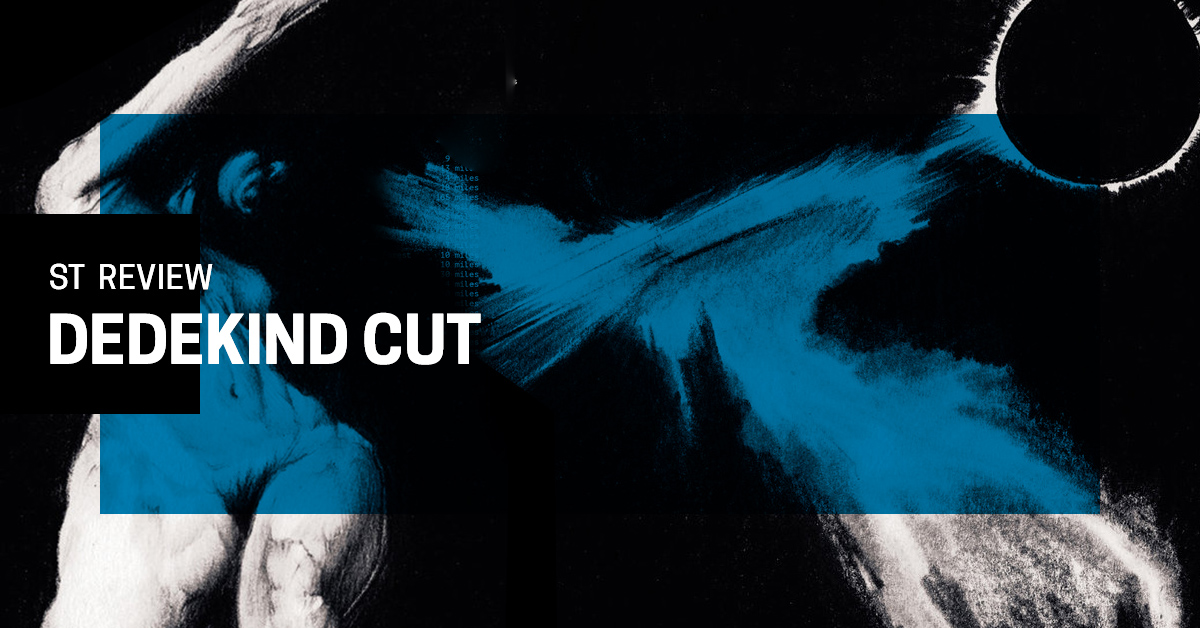
Dedekind Cut "Tahoe" album cover fragment
On his latest record, Dedekind Cut continues to explore bleak ambient sound spaces, balancing dystopian unease with newfound serenity. [social_warfare]
Fred Warmsley's Dedekind Cut has seen his gradual transition from past endeavors in hip hop, jungle, techno and even post rock as Lee Bannon or Barrio Sur to the realms of ambient sound. Warmsley started out in 2012, producing beats for Joey Bada$$ on his Summer Knights mixtape and collaborating with the Pro Era collective. Soon after, he signed with Ninja Tune and began developing a harsher sound based on jungle and dnb with signature dark undertones. As Warmsley’s output became more experimental and reached a certain peak on Pattern of Excel LP, he changed his moniker to Dedekind Cut and created a series of compelling, chaotic ambient/power electronics releases, along with artists like Chino Amobi or Rabbit finding new ways to represent these styles.The shift that notably began in 2016 with the excellent American Zen EP seems to have reached completion on Tahoe. Here Dedekind Cut dissociates more consciously from all the boxes he has sometimes been unable or unwilling to tick, and links the influences informing his earlier work with the desolation of a post club experience. In that sense, Tahoe is more abstract than $uccessor, which turned ambient on its head both in terms of sound and vision. On Tahoe, the very notion of abstraction continues to explore appropriations of the American west, mythology and nature, and to convert them into something disturbingly beautiful and hard to define.
As with previous releases, the visual and conceptual cues are omnipresent, but they are more subtle. The album title represents the mountain town in California where Warmsley lives, reinforcing the motifs of the wild west depicted and redefined on the cover of $uccessor. The artwork reproduces the contrast of light and darkness in a mythological manner, signalling a crucial change in the atmosphere. Even at its most stripped down moments, Tahoe is very cinematic, evoking vast spaces and accentuating their loneliness through an overall minimal approach, through tape hiss, or by filling them with neoclassical compositions infused with estranged sounds of nature. The opening tracks, Equity and The Crossing Guard, serve as a gentle, barely audible introduction that relies on something not fully present - as if emerging from a deep, unthreatening void. MMXIX erupts in an interplay of peaceful and unsettling miniatures: the initial burst of chorals and strings soon quiets down, giving way to serene harmonies characteristic of a new age record that soon dissolve into samples of throat singing.
Throughout the record, harsher elements are persistent, yet sparse. Where $uccessor exposed the listener to moments of menace, Tahoe emanates a sense of vague, lurking unease immersed in an aura of sacredness, such as with the religious chants and airy synths intensifying or softening the drones on Hollow Earth. In line with the Blade Runner and Vangelis references that may come to mind, Tahoe sometimes feels like a soundtrack for imminent dystopia, used primarily as an aesthetic frame for more complex ideas. Sounds of streams and birdsong coexist with vivid, exotic melodies, atonal backgrounds and guttural samples. This unstable harmony is never fully disrupted - rather it is shaken with an influx of artificial energy, as if echoing something yet to come.
Amidst the uncertainty, the monumental serenity of pieces like the title track, De-Civilisation, and the closing Virtues offer a strange solace. Tahoe seems to draw its power from a newly found peace and undefeated resignation, establishing small connections between semblances of reality.
Dedekind Cut - Tahoe - Kranky
A1 Equity
A2 The Crossing Guard
B1 Tahoe
B2 MMXIX
C1 De-Civilization
C2 Spiral
D1 Hollow Earth
D2 Virtues
